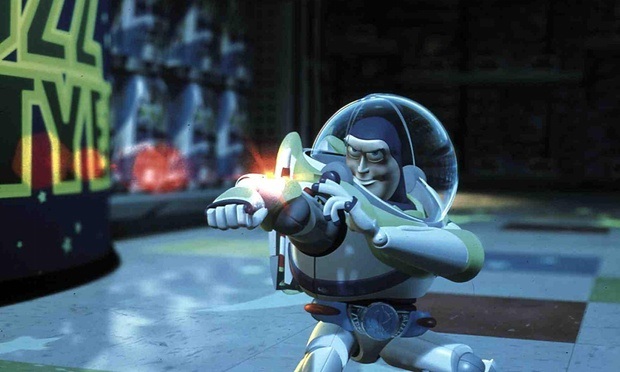Academics: you are going to fail, so learn how to do it better
Unsuccessful endeavours are a crucial part of academia – use these five tips to turn them to your advantage

Pixar encourages its staff to reflect on failures for their development. Photograph: Alamy
Failure is everywhere and nowhere for academics. Manuscripts and grant applications are written but rejected, career plans go awry, students struggle, interpersonal conflicts occur, job applications are unsuccessful. And yet our CVs, departments and conferences focus on success – making it appear constant and effortless for others.
But attention is being turned now to how we can make better use of failure – “the upside of down”, according to US author Megan McArdle in her book of the same name. So here are five ways to fail more successfully in your academic career:
Be honest
Successful people fail. Yet because failure makes us feel ashamed, we often choose to spin it. A review in the Journal of the American Medical Association found that up to 40% of research studies with negative results are spun into positive findings.
Academics naturally want to appear to be experts, but being seen to be successful is often considered more important than being seen to learn from failure. In his book Creativity, Inc., Pixar president Ed Catmull describes the extensive efforts that leaders and staff at the studios devote to openly discussing failure – taking time during and after projects to share what did not work, in a candid and direct way.
To remove the stigma of failure, we need to first acknowledge its existence rather than spinning or denying it. We must discuss it more openly in seminars, conferences and supervisory meetings.
Be thankful
Failure can be a gift. It can come before major advances and is usually not as bad as it seems. McArdle says that people think of failures too generally, and forget that they vary in size, fixability and gravity. Keep a sense of perspective.
When failure happens, be grateful that it occurred but was not bigger, more damaging or more complex. Then list the actual and potential benefits of what did happen.
Take responsibilty
It’s easy – and tempting – to blame failure on others. Yes, a manuscript may have been rejected because of a cranky reviewer, but refusal is much more likely to be the result of weaknesses in the article, lack of fit with the journal or poor writing.
A considered and frank reflection of what you contributed to failure is difficult but necessary. There are usually many factors but the only ones you control are those involving your behaviour. So take the time to think about what can you do differently next time.
It is important to discuss openly how each person contributed to a failure. Focus only on your own actions, listen and avoid being defensive or apportioning blame. Avoid explanations based on single factors and instead assess how your contributions compounded or amplified each other. Remember: very few people act with the intention to fail. Be empathetic and supportive when sharing your contributions.
Learn from it
How will failure improve you? From our early school years, we are encouraged to see our performance as the end product of our characteristics. This fixed mindset brings self-esteem to many high-achieving future academics during their school years. But in adulthood, failure can make us doubt if we are good enough and wonder why others seem to better.
In their book Thanks For The Feedback, Douglas Stone and Shiela Heen argue that failure should be approached with a growth mindset, focused on improving your own skills. What can be learned to reduce the likelihood of future failure in similar situations? What new or different insight would have improved the approach to the situation?
Academics should be rewarded for learning from failure. We need safe spaces and places to talk, write and share what was has been learned. This culture allows everyone to benefit from failure and make these discussions more common, conventional, and constructive.
Move on
You can’t change the past but your failure can shape the future, so move on – decisively and optimistically. Don’t hold on to negative or damaging emotions towards yourself or other people. Remember, it takes courage to face failure and learn from it; doing so is testament to the skills, openness and relationships of all those involved. Failure is inevitable in academic life but wasting it is not.
Alexander Clark is a professor and associate dean, and Bailey Sousa is director of the International Institute for Qualitative Methodology, both at the University of Alberta, Canada.